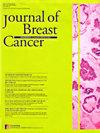Murine Mammary Carcinoma Induces Chronic Systemic Inflammation and Immunosuppression in BALB/c Mice
IF 2.2
4区 医学
Q3 ONCOLOGY
引用次数: 2
Abstract
Purpose The F3II cell line is a highly invasive variant of mammary carcinoma. Although it is frequently used as a model to evaluate the efficacy of immunotherapy, its impact on the immune system remains poorly understood. The main objectives of this study were to evaluate the effects of F3II tumors on the development of chronic inflammation and to characterize tumor-associated immunosuppression. Methods Following the experimental implantation of F3II tumors in BALB/c mice, alterations in the liver and spleen anatomy and the numbers of circulating leukocytes, myeloid-derived suppressor cells (MDSCs), and regulatory T cells were measured using hematological techniques, histopathological analysis, and flow cytometry. The capacity of the F3II tumor-bearing mice to reject MB16F10 allogeneic tumor transplantation was also evaluated. In addition, the restoration of immune parameters in tumor-bearing mice was evaluated after standard breast cancer chemotherapy and surgical tumor excision. Results F3II tumor implantation increased the levels of chronic inflammatory markers, such as the neutrophil-to-lymphocyte and platelet-to-lymphocyte ratios, and caused myeloid alterations, including extramedullary granulopoiesis and megakaryopoiesis, along with the recruitment of MDSCs to the spleen. Chemotherapy or surgical F3II tumor removal completely rescued the tumor-associated extramedullary granulopoiesis and megakaryopoiesis. Notably, the presence of F3II tumors reduced the capacity of BALB/c mice to reject MB16F10 allogeneic tumor transplantation. Conclusion These results support the occurrence of F3II tumor-mediated immune cell dysfunction, which mimics the immune alterations characterized by chronic systemic inflammation and immunosuppression observed in breast cancer in clinical settings. Thus, the F3II tumor model is relevant for evaluating novel breast cancer immunotherapies and combinations in preclinical studies. This model could also be useful for identifying appropriate therapeutic targets and developing proof-of-concept experiments in the future.小鼠乳腺癌诱导BALB/c小鼠慢性全身炎症和免疫抑制
目的F3II细胞系是乳腺癌的一种高侵袭性变体。尽管它经常被用作评估免疫疗法疗效的模型,但对其对免疫系统的影响仍知之甚少。本研究的主要目的是评估F3II肿瘤对慢性炎症发展的影响,并表征肿瘤相关的免疫抑制。方法在BALB/c小鼠中实验性植入F3II肿瘤后,使用血液学技术、组织病理学分析和流式细胞术测量肝脏和脾脏解剖结构的变化以及循环白细胞、骨髓源性抑制细胞(MDSCs)和调节性T细胞的数量。还评估了F3II荷瘤小鼠排斥MB16F10同种异体肿瘤移植的能力。此外,在标准乳腺癌症化疗和手术切除肿瘤后,评估荷瘤小鼠免疫参数的恢复。结果F3II肿瘤植入增加了慢性炎症标志物的水平,如中性粒细胞与淋巴细胞和血小板与淋巴细胞的比例,并导致骨髓改变,包括髓外粒细胞增多和巨核细胞生成,同时MDSCs募集到脾脏。化疗或外科F3II肿瘤切除完全挽救了肿瘤相关的髓外粒细胞增多症和巨核细胞生成。值得注意的是,F3II肿瘤的存在降低了BALB/c小鼠排斥MB16F10同种异体肿瘤移植的能力。结论这些结果支持F3II肿瘤介导的免疫细胞功能障碍的发生,其模拟了临床上在癌症中观察到的以慢性全身炎症和免疫抑制为特征的免疫改变。因此,F3II肿瘤模型与临床前研究中评估新型乳腺癌症免疫疗法和组合相关。该模型还可用于确定合适的治疗靶点,并在未来开发概念验证实验。
本文章由计算机程序翻译,如有差异,请以英文原文为准。
求助全文
约1分钟内获得全文
求助全文
来源期刊

Journal of Breast Cancer
医学-肿瘤学
CiteScore
3.80
自引率
4.20%
发文量
43
审稿时长
6-12 weeks
期刊介绍:
The Journal of Breast Cancer (abbreviated as ''J Breast Cancer'') is the official journal of the Korean Breast Cancer Society, which is issued quarterly in the last day of March, June, September, and December each year since 1998. All the contents of the Journal is available online at the official journal website (http://ejbc.kr) under open access policy. The journal aims to provide a forum for the academic communication between medical doctors, basic science researchers, and health care professionals to be interested in breast cancer. To get this aim, we publish original investigations, review articles, brief communications including case reports, editorial opinions on the topics of importance to breast cancer, and welcome new research findings and epidemiological studies, especially when they contain a regional data to grab the international reader''s interest. Although the journal is mainly dealing with the issues of breast cancer, rare cases among benign breast diseases or evidence-based scientifically written articles providing useful information for clinical practice can be published as well.
 求助内容:
求助内容: 应助结果提醒方式:
应助结果提醒方式:


